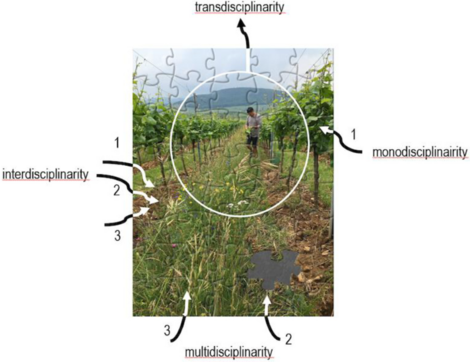How can science and agriculture be connected closer together? Jean Masson explores this question in a study published in 2024. He examines how participatory action research can be used as a tool to tackle complex problems in a targeted manner. Instead of a mono- or interdisciplinary view, a transdisciplinary approach is outlined that can transform research from the initial question to the implementation of measures.
Agriculture is in the midst of major global challenges. Examples include climate change, pesticide use and the decline in biodiversity. These issues are so complex that they cannot be solved by one academic discipline alone, be it agronomy, biology, chemistry, or climatology. Despite extensive research efforts, the results are often inadequate or difficult to implement. According to Masson, participatory action research is a more suitable means of building bridges between science and agriculture.
A central aspect of participatory action research is the involvement of local stakeholders in the research process, which not only leads to new findings, but also promotes the acceptance and implementation of the results. The French ‘REPERE’ project, which initiated changes in the care of vines, such as the reduction of tillage, is cited as an example. Masson argues that this type of research also transforms science itself by promoting reflexivity and interdisciplinary collaboration. This not only leads to practical solutions, but also better prepares science for the pressing issues of our time.
This can lead to a reorientation of research questions that is interdisciplinary in nature and attempts to view complex systems holistically instead of dividing them into individual disciplines. According to Masson, the research disciplines themselves should be adapted and expanded on the basis of new findings. This in turn promotes a rethinking of the researchers, farmers and other stakeholders involved. The aim should be to bring about practical changes in agriculture, for example the promotion of biodiverse farming methods.
From the perspective of biodynamics, it is particularly interesting that the role of transdisciplinary approaches is emphasised. Biodynamic practices are not only ecologically effective, but can also be further developed together through participatory approaches by farmers and scientists. A central point is the transformation of the actors' thinking: changing existing practices is often initially met with resistance, but acceptance can be quickly built up through experimentation and reflection. The integration of changed practices led to surprisingly rapid changes in the study, both on an agricultural and socio-cultural level.
Participatory action research is heavily dependent on the co-operation of the various stakeholders. In addition, solutions are often not universally valid, but must be individually developed and adapted to the given situation. Despite these hurdles, this form of research offers a number of advantages. According to this study, not only can a close connection between humans, plants and the environment be realised through participatory research, but it can also be scientifically substantiated. This builds a bridge between empirical science and traditional, holistic approaches.
Sources and further links to this article
- Original study:
Jean Eugène Masson. Participatory-action research leading to transformation of scientific disciplines’ interrelations, research paths, actors’ reasoning, and viticultural practices. Nat. Sci. Soc., (2024)
https://doi.org/10.1051/nss/2024042 - This study is covered by Creative Commons (link to license) and has been summarized for this study report.
- Link to the REPERE project of INRAE
